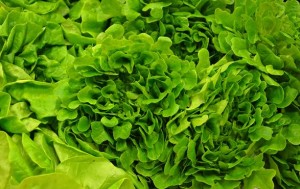Increasingly, folk want to eat local, safe, fresh, organic greens and meats with no additives or pesticides or antibiotics or GMOs for fear of what is known and yet unknown about their effects.
While runaway development everywhere threatens this effort to go green and fresh, pricing small farmers out of the market, nevertheless, the public appetite for good and better food is growing, and people are prepared to pay more to eat better.
At a Rural Innovation Confab in Winchester last Thursday, Lovettsville’s goat cheese meister, Molly Kroiz, said “real cheese tastes better, and people are tired of eating Kraft singles.”
Molly said cheese is a “combination of science and art” and allows for experimentation that lends a pleasurable flavor from how you make it, and where it’s made. Molly’s place is a farmstead meaning that she milks the Alpine goats, who forage on her rich pasture, and at this same farm, her husband Sam and she make the cheese. Molly said, “This quality is called, ‘Terroir,’ the taste of place.”
Some talk as if California is a “local” market, but a market truly local allows a farmer who favors craft to produce food that can be distributed close to the farm and consumed fresh.
Molly said, “It’s really like why craft beer is better than Bud.”
Gary Hornbaker, Loudoun’s Rural Resources Coordinator, a former AG extension agent, and who taught at Virginia Tech, took on the laboring oar of chairing this wonderful array of Ag-innovators.
Gary introduced Solomon Rose, the owner of Organarchy Hops, who has been processing hops in Lucketts, Virginia, taking hops from local growers, processing them, and distributing the hops to breweries including smaller batches to home brewers.
Mike Koch, of Fresh Farm, estimates that there are 16 million consumer mouths in the region for local farmers, making big agri-business for small farmers.
“The consumer’s demand for organic food that is local and fresh,” said Mike, “is strong and growing.”
Mike encouraged “reclaiming small farm viability,” like Molly and Solomon have done with cheese and hops.
We often say that children are our future.
Paul Mock, of Mock’s Greenhouse, said, “I have people apply to work for me who have no practical experience. They don’t know anything.”
Jim Hilleary, Loudoun’s Extension Agent and a Member of the Loudoun Soil and Water Board, had an answer, “For one thing, Paul, it’s people who are unemployed and respond to any ad whether qualified or not. But it’s also critical that we start educating our young about agriculture from when they are 4H Clover buds, at 5 years of age up, all through 4H, all through secondary school and at the university.”
Paul’s produce suggests the high standards of these innovative farms. You wanted a mouthful of his Kelly green lettuce but only if you could have it without compromising its harmonic artful appearance.
Clifton Slade, a wise small farmer, and former extension agent, encourages one acre farming, using the 43,560 square feet that make up an acre, and making a dollar for what you plant on every square foot.
But the message for all the small farmers is a sign that Clifton showed us, namely, “the farm gate hangs on welcome hinges.”
Local farmers are welcoming local communities.
As Dr. Donna Ballard, of WV’s Potomac State College, said, “We’re here to feed ‘em.”

